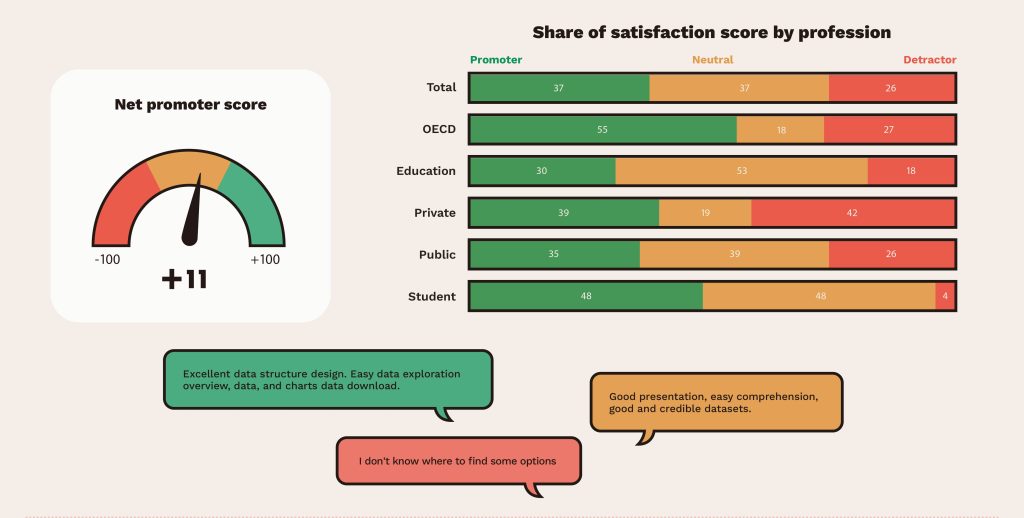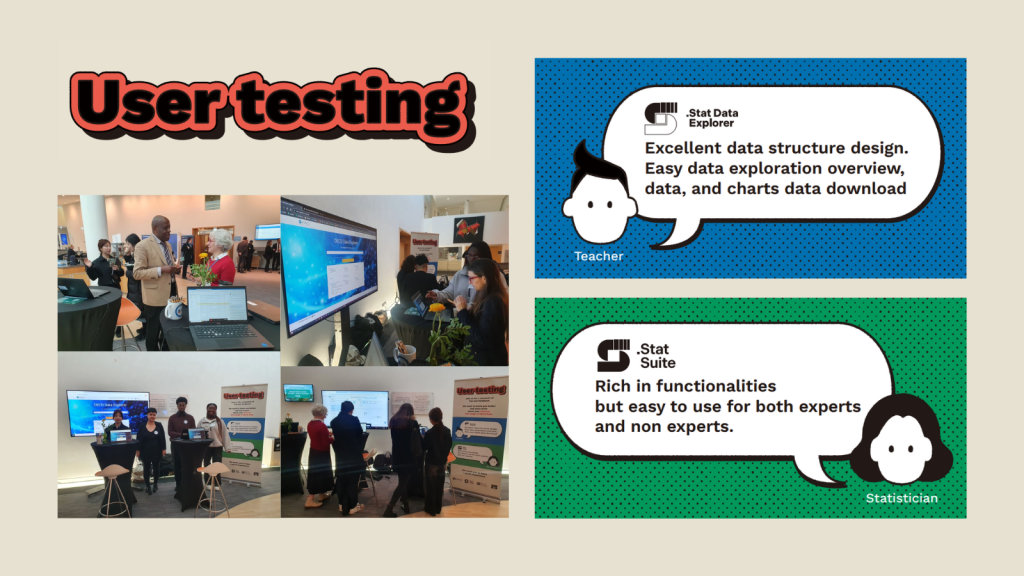Creating highly user-focused products is a key objective for any organisation. By adopting a user-centred design (UCD) culture and involving users throughout the entire product development process, can lead to better-informed decisions and prioritisation of efforts. In this post, we will explore the importance of a UCD culture and the activities conducted by the Community in regard to the .Stat Data Explorer to enhance the user experience.
The Power of User Research
To build user-centric products, it is crucial to understand the needs, preferences, and pain points of the target audience. The Community has started conducting various user research activities, such as pop-up surveys and audience profiling surveys during conferences. These surveys aim to gain insights into how people find and utilise our data and products, allowing for better targeting and customisation of the .Stat Data Explorer.
Driving Decision Making through Live User Testing
Live user testing with a diverse set of participants has already taken place during the OECD Green Growth and Sustainable Development forum. This testing helped gather valuable information about user characteristics, behaviors, and user flows. By measuring satisfaction levels, the team has been able to identify areas for improvement that will feed informed decisions about product enhancements. Notably, the positive average satisfaction rating of 7.5 and a Net Promoter Score (NPS) of +11 highlight the effectiveness of these efforts.

Emphasising Accessibility
Inclusivity is a crucial aspect of a UCD culture. The Community has made efforts to ensure accessibility by conducting live user testing with visually impaired individuals. The satisfaction rating of 7 for this user group indicates progress, supported by an impressive accessibility score of 88 out of 100. By prioritising accessibility, the team is fostering a culture that caters to the diverse needs of its users.

The User Research Task Force (UTF)
To further cultivate a UCD culture, the Community has established the User Research Task Force (UTF). This group comprises diverse individuals from our members, partners, and wider community, who collaborate to share knowledge, learn, and experiment together. The UTF aims to develop user-centred design workflows and products by establishing satisfying user journeys and delivering integrated continuous user feedback processes.
Challenges and Opportunities
Looking ahead, the Community acknowledges the need for synchronised usability campaigns, user testing, and usability assessments. These activities will help gather valuable insights and ensure ongoing enhancements to the user experience. Additionally, a workshop on user-centred design, to be scheduled for spring 2024, presents an opportunity to engage with industry experts, invite speakers, and encourage participation from those interested in this topic.
To conclude
A strong user-centred design culture is essential for creating products that meet user needs and deliver exceptional experiences. Through these efforts, the Community is setting an example of incorporating user feedback, conducting user testing, and prioritising accessibility. By continuing to foster this culture and addressing challenges, we are well-positioned to achieve our objective of building a highly user-focused product that is fit-for-purpose and provides a state-of-the-art tool for official statistics.
Thank you to Laura Belli, Digital Product Manager, Statistics and Data Directorate at the OECD for contributing to this post.



